DLR - Students enrolled in majors and specializations related to the semiconductor industry, artificial intelligence, cybersecurity, and cyber safety at Quy Nhon University will be eligible for a range of special incentives, including tuition support, scholarships, internship opportunities, and career development prospects at the local, national, and international levels.
These incentives are a key component of the High-Tech Human Resource Development Project for Binh Dinh Province (now Gia Lai Province) for the 2025–2030 period. The project was announced at the 2025 Admissions Information and Incentive Policy Press Conference, held by Quy Nhon University on July 15, 2025.
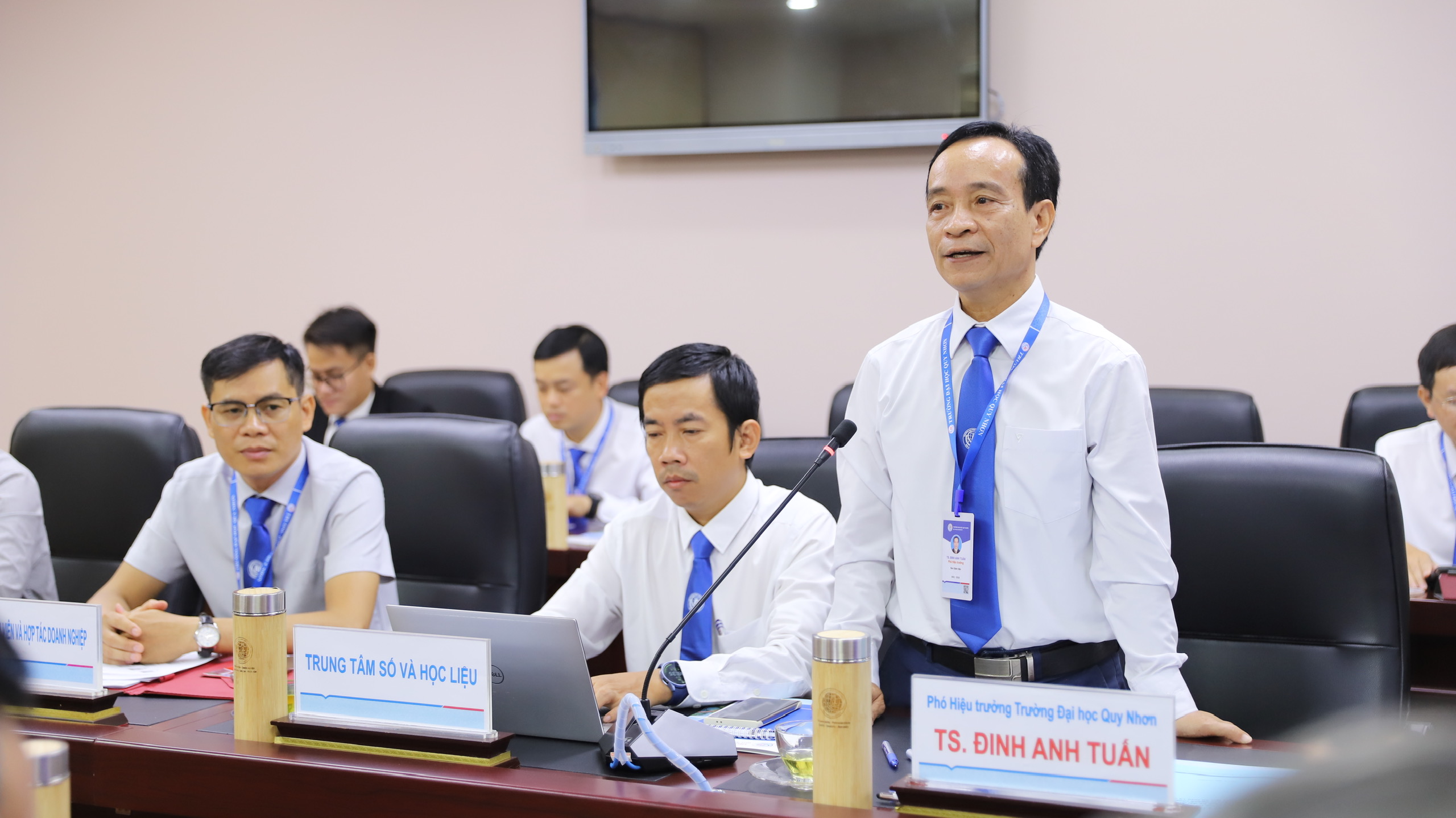
Dr. Dinh Anh Tuan – Vice Rector of the university – chaired the press conference
Gia Lai Province is steadily affirming its pioneering role in the high-tech sector with the official launch of its Human Resource Development Project in the fields of semiconductors, artificial intelligence, cybersecurity, and cyber safety. The project aims to train at least 7,500 engineers, bachelor’s degree holders, and high-level specialists to meet the growing demand for high-tech industrial development in Vietnam. This initiative is one of the province’s key strategies to anticipate the digital transformation trend and foster high-tech industry growth nationwide.
Under the project, Quy Nhon University has been entrusted as the primary implementing institution. The university will be equipped with a shared-use semiconductor technology laboratory, with a total investment of up to VND 120 billion. This facility will be one of the most advanced laboratories in the Central Highlands and South Central regions, serving both training and in-depth research in the field.
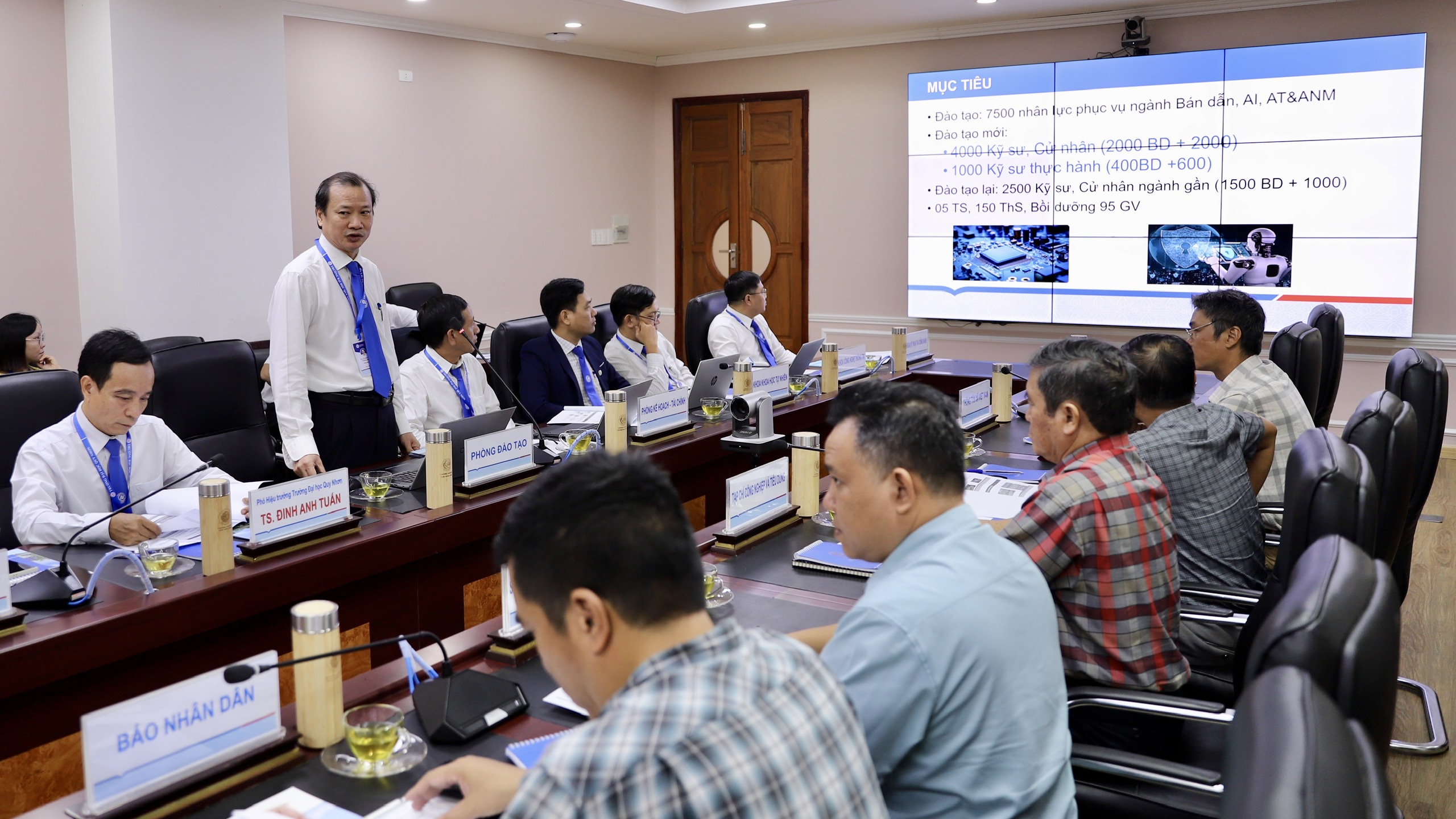
Dr. Le Xuan Vinh – Head of the Academic Affairs Office – presented the 2025 admissions information, an overview of the project, and the related majors and specializations in semiconductor technology, artificial intelligence, cybersecurity, and cyber safety
At the press conference, representatives from the university’s leadership provided an overview of Quy Nhon University’s 2025 admissions information, as well as the Human Resource Development Project in the fields of semiconductors, artificial intelligence (AI), cybersecurity, and cyber safety for the 2025–2030 period.
They introduced four training programs aligned with the project’s focus areas, including:
• Electronics and Telecommunications Engineering (specialization in IC Design),
• Engineering Physics (specialization in Semiconductor Processing, Packaging, and Testing Technology),
• Artificial Intelligence, and
• Information Technology (specialization in Cybersecurity and Safety).
These disciplines are receiving special attention from Gia Lai Province in the current context of digital transformation and the development of high-tech industries in Vietnam.
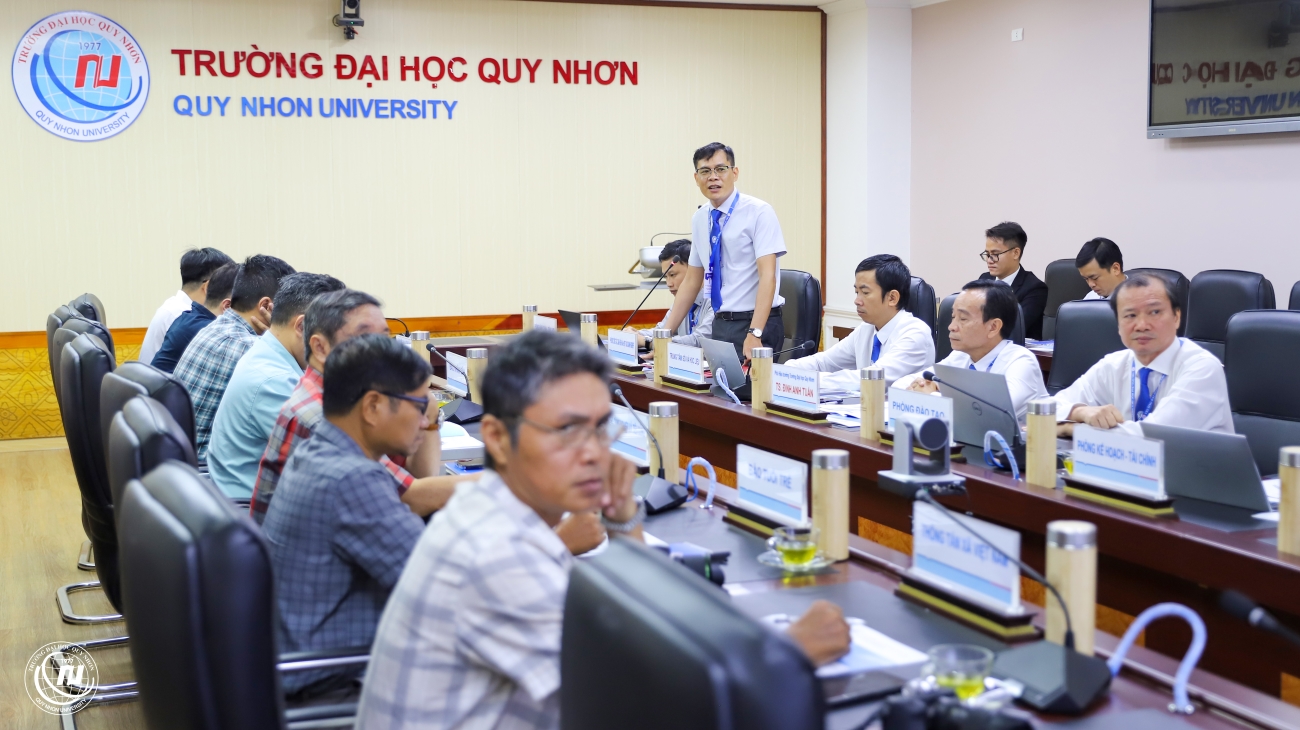
Mr. Nguyen Khac Khanh, MA – Head of the Office of Student Affairs and Business Relations – introduced incentive policies and career opportunities for students pursuing high-tech fields
The university also introduced a range of incentive policies and career opportunities for students pursuing studies in these high-tech fields. These include financial aid, tuition support, scholarship programs, internship opportunities, and career development at the local, national, and international levels.
Specifically, students can access student loans from the provincial branch of the Vietnam Bank for Social Policies to cover tuition fees, with Gia Lai Province covering 100% of the interest throughout the duration of their studies. Notably, students who commit to working in the province for at least three years after graduation will have their entire tuition fees fully covered by the provincial government.
In addition, students with academic performance rated as “Good” or higher will be eligible for merit-based scholarships from QNU, valued at or above the amount of tuition paid. Students may also be considered for corporate-sponsored scholarships from the university’s industry partners, as well as the prestigious Vallet Scholarship worth over VND 30 million per year, subject to meeting eligibility criteria.
Beyond financial support, students are given priority for on-campus dormitory housing and have access to hands-on training and research using state-of-the-art equipment in the university’s VND 120-billion high-tech laboratory. QNU boasts a highly qualified faculty and strong research teams, providing a robust academic environment for student development.
Moreover, students will have internship opportunities at leading technology companies such as FPT Software, TMA Solutions, FUJINET, and others. They may also work as paid student collaborators and benefit from preferential recruitment policies offered by the province, with attractive salary packages. These policies not only support students throughout their academic journey but also open wide career prospects upon graduation.
At the press conference, representatives from the university, local departments and agencies, businesses, and media organizations engaged in meaningful discussions on key topics related to training orientation, collaboration, and the implementation of the project.
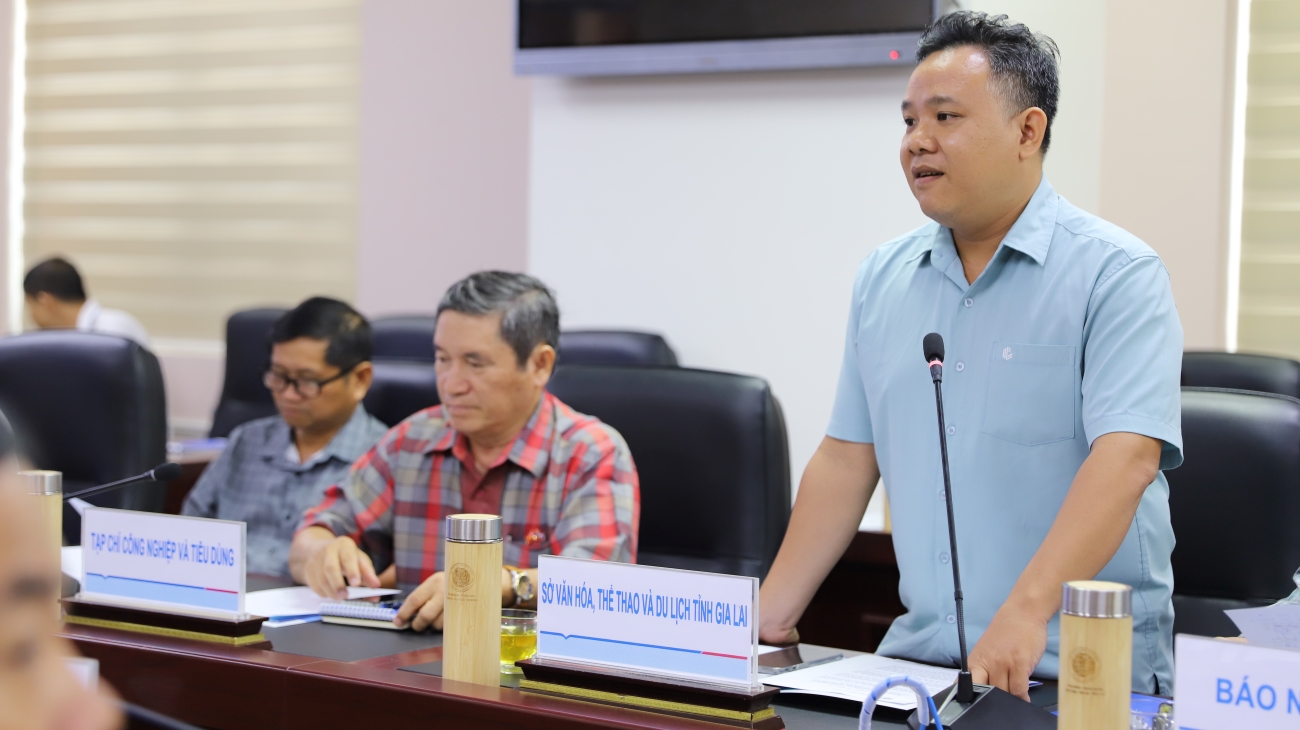
A representative from the Department of Culture, Sports, and Tourism delivered remarks at the event
Dr. Dinh Anh Tuan, Vice Rector of Quy Nhon University, emphasized the role of the university’s Center for Digital Services and Learning Resources as the focal point for coordinating with the Gia Lai Department of Culture, Sports, and Tourism to strengthen communication and media outreach. He also affirmed the university’s commitment to leveraging its unique strengths in education and scientific research. With over 51% of faculty members holding doctoral degrees, including associate professors and full professors, the university is confident in its academic capacity and ability to deliver high-quality training programs.
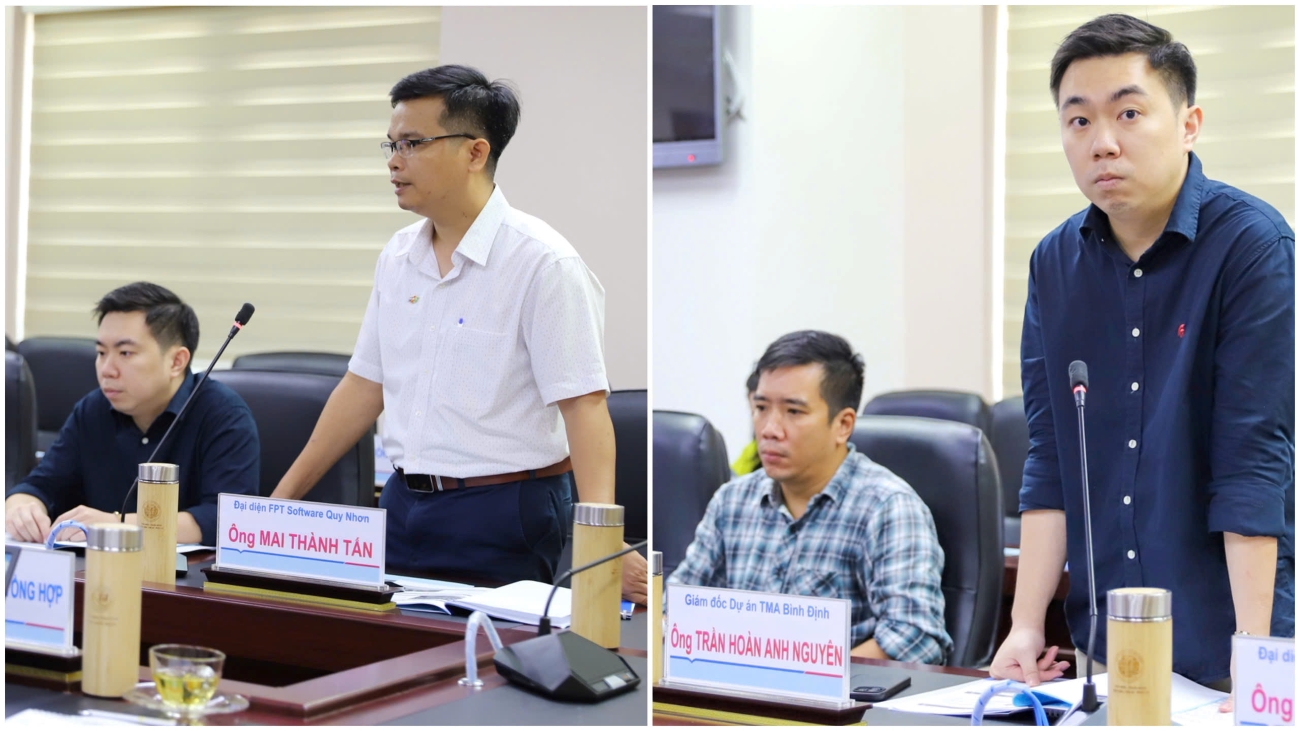
Representatives from participating enterprises shared insights on their future human resource needs
Representatives from the provincial departments also called for closer collaboration between QNU and local authorities following the recent administrative merger. Currently, more than 100 journalists from over 50 media outlets are active in the region.
Companies such as TMA Solutions and FPT Software expressed strong demand for recruiting hundreds of engineers with expertise in AI, software, and firmware. They also showed keen interest in learning more about QNU’s specific training programs in the semiconductor field. FPT shared its vision of becoming an AI Valley in the region and pledged to support QNU students through internship programs.
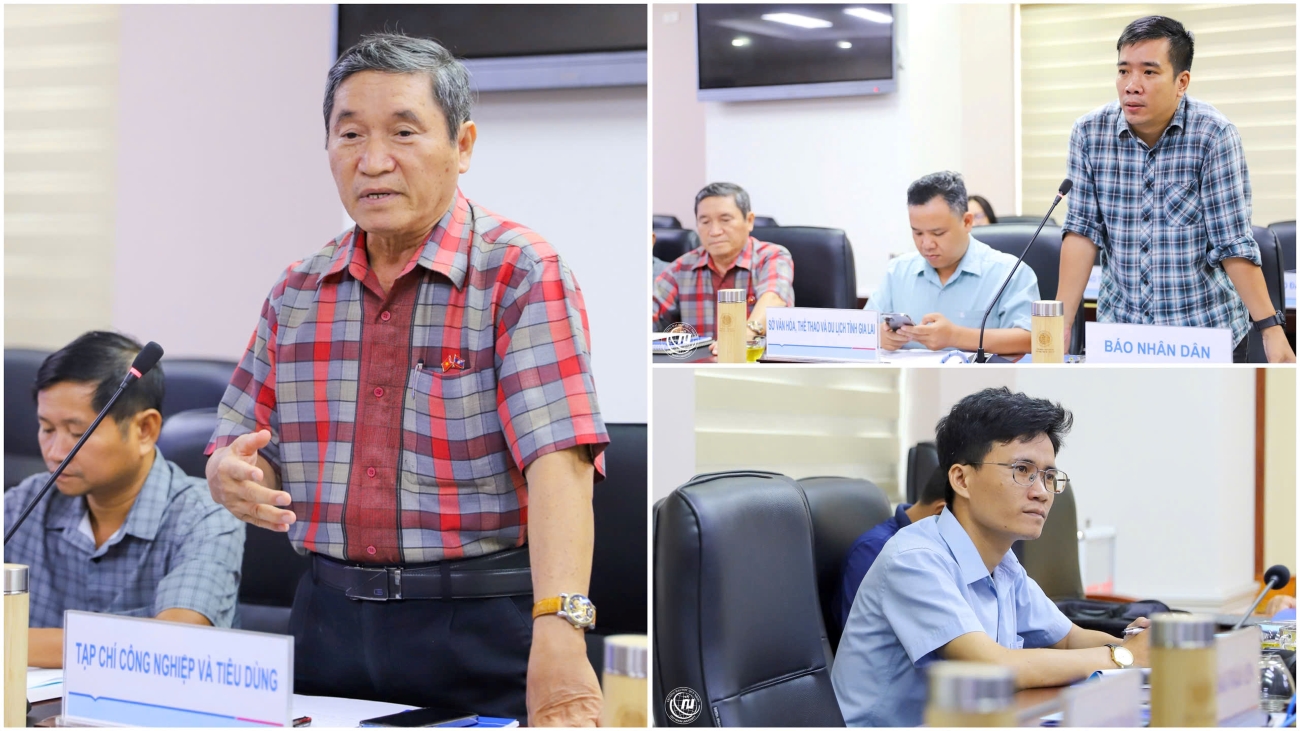
The press conference received significant attention from the media and news agencies
In response to media inquiries, Dr. Le Xuan Vinh – Head of the Academic Affairs Office – stated that within the framework of the project, the university will also offer various transfer and bridging programs for students currently enrolled in engineering, information technology, and physics-related majors. These programs aim to meet labor market demands with greater flexibility.
He emphasized that the university is striving to become a leading training center in the Central Region while actively partnering with industry to provide students with opportunities for hands-on experience and advanced research.
Regarding the semiconductor laboratory project, a representative from the Planning and Finance Office shared that this is a new model that has received investment approval from the provincial government. Quy Nhon University is currently learning from existing models in Ho Chi Minh City and the Vietnamese-German University to develop an appropriate equipment list. At the same time, the university is working closely with the Gia Lai Department of Science and Technology to ensure effective operation of the lab in support of students across the province.
At the close of the press conference, university leadership expressed their sincere thanks to provincial authorities, members of the press, and business representatives for their continued support. They also conveyed the hope that the admissions information will be widely disseminated to students, helping to attract high-quality human resources for the semiconductor, artificial intelligence, and cybersecurity sectors in the future.
As the lead institution in the project, Quy Nhon University is steadily affirming its position as a regional hub for high-quality human resource training in the Central and Central Highlands regions. The implementation of this project not only contributes to improving the quality of higher education but also addresses the growing demands of the digital economy and international integration.
Minh Hien
Vo Thien An